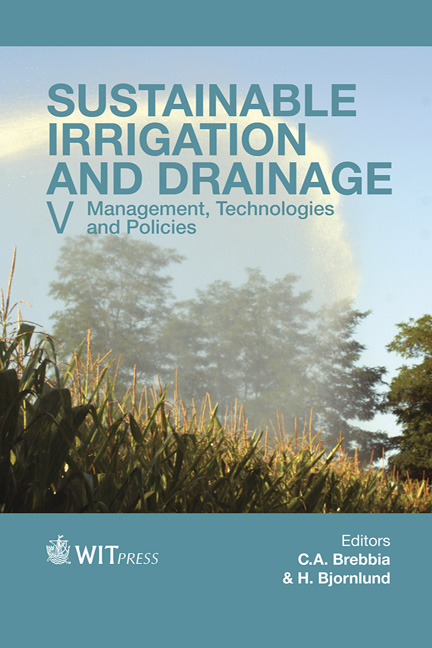Deep Groundwater Quality And Its Suitability For Drinking And Agricultural Purposes, WadiBaye, Middle Region, Libya
Price
Free (open access)
Transaction
Volume
185
Pages
14
Page Range
183 - 196
Published
2014
Size
1,353 kb
Paper DOI
10.2495/SI140171
Copyright
WIT Press
Author(s)
F. A. Swaid, A. A. Issa
Abstract
Assessment of suitability of deep artesian groundwater (Kiklah aquifer) for domestic and agricultural purposes was carried out in the WadiBaye area; Middle Region, Libya, where, groundwater is the main source for domestic and agricultural activity. Eighteen groundwater samples were collected from different wells, distributed over the Wadi’s area. Suitability of groundwater for irrigation purpose was evaluated based on US Salinity diagram, which shows that 89% of the samples falls in the zone of very high-salinity hazard (C4) and medium-sodium hazard (S2) type. The Wilcox diagram shows that most of the samples (89%) fall in the category of doubtful to unsuitable for irrigation purposes. The residual sodium carbonate (RSC) and the sodium adsorption ratio (SAR) in groundwater signified good quality. While soluble sodium percentage (Na%) indicates water is doubtful for irrigation, permeability index (PI) indicates water is injurious to unsatisfactory for irrigation and the magnesium adsorption ratio (MAR) indicative that 72.2% of groundwater samples are suitable for irrigation purposes. Overall, the groundwater can be classified with few exceptions as suitable for irrigation under certain conditions such as good management, good drainage system, deep ground to keep soil salt balance and highly salt tolerant plants. However, it is recommended that water drawn from such sources should be purified of excess elements well before being used for drinking and other purposes. Wells numbered as 1, 3, 4, 6 should also be excluded from domestic and drinking uses. Also it is recommended that the water should be not used directly after pumping.
Keywords
water quality, Kiklah aquifer, physicochemical parameter, Libyan drinking water standards, salinity hazard





